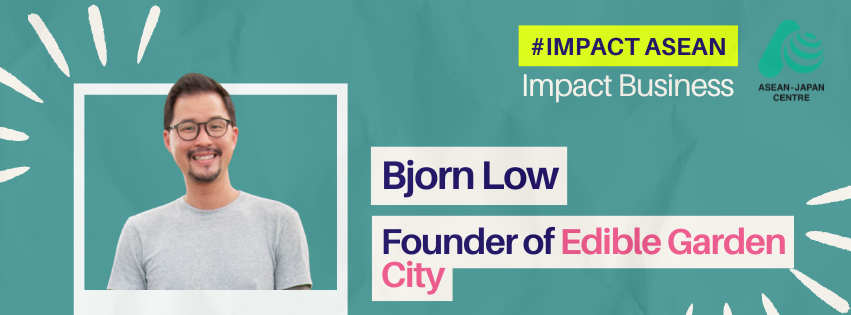Established in 2011, Edible Garden City builds urban gardens to promote self-sufficiency, food waste management, and community building in Singapore. Founder Bjorn Low created a model of accessible pop-up farms run by local “agripreneurs” as spaces that bring people together. Championing inclusive and sustainable spaces in the urban landscape, Bjorn hopes to share his model throughout ASEAN cities.
Read more about Bjorn Low’s #impact journey below.
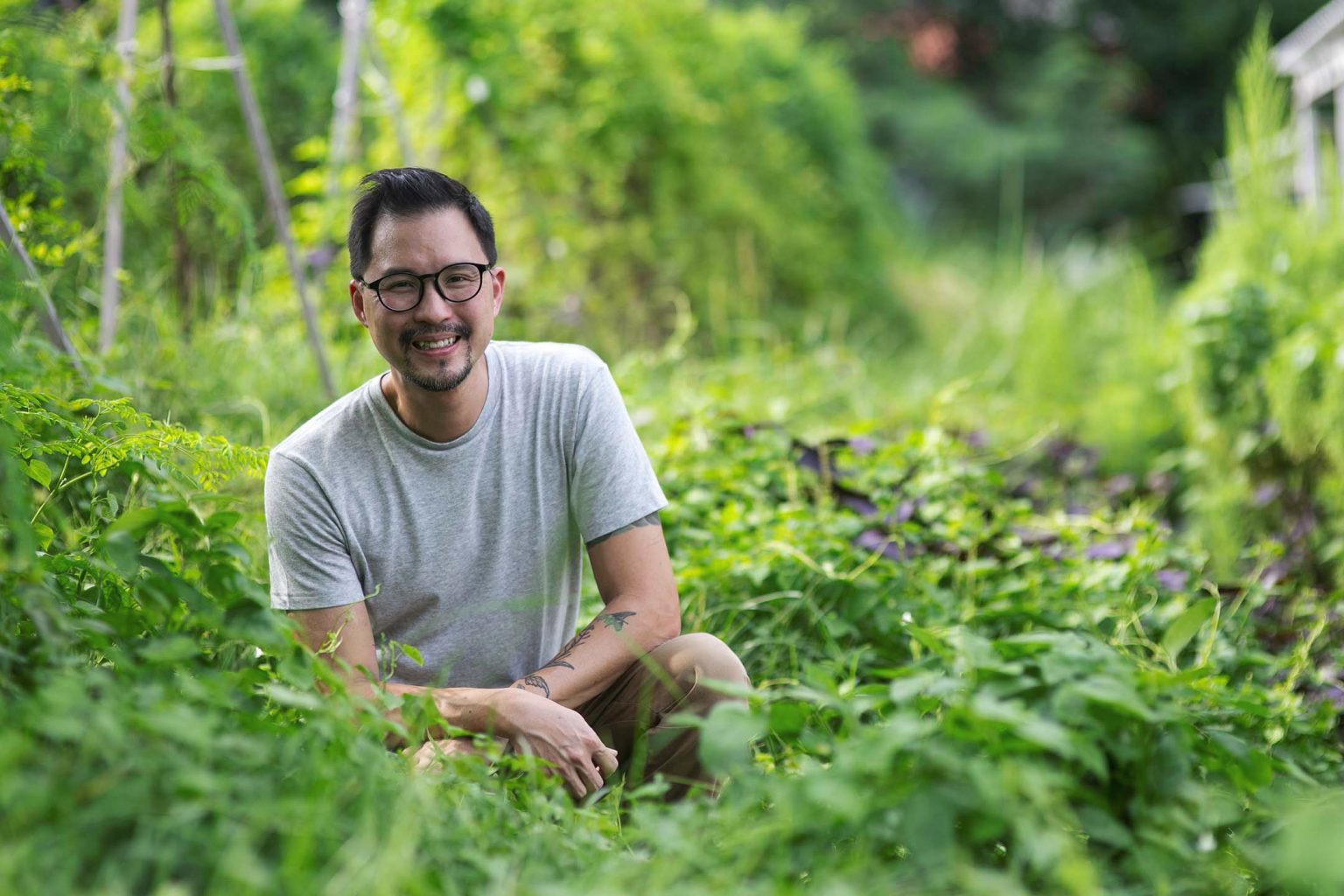
Q. What motivated you to begin your #impact journey?
Growing up in Singapore, the focus was always on academic achievement and corporate success. It’s a very structured environment, driven by economic progress. Many of us, including myself, followed this prescribed path for a long time, working in corporate roles. But eventually, I needed to reassess what success really meant to me.
My perspective shifted when I spent time in Europe and Japan, especially working on a permaculture farm near Mount Fuji.
Living sustainably and growing my own food became deeply empowering.
– Bjorn Low, Founder of Edible Garden City
I knew I wanted to bring this ethos back to Singapore. However, starting a traditional farm here was incredibly challenging due to high costs and regulatory hurdles.
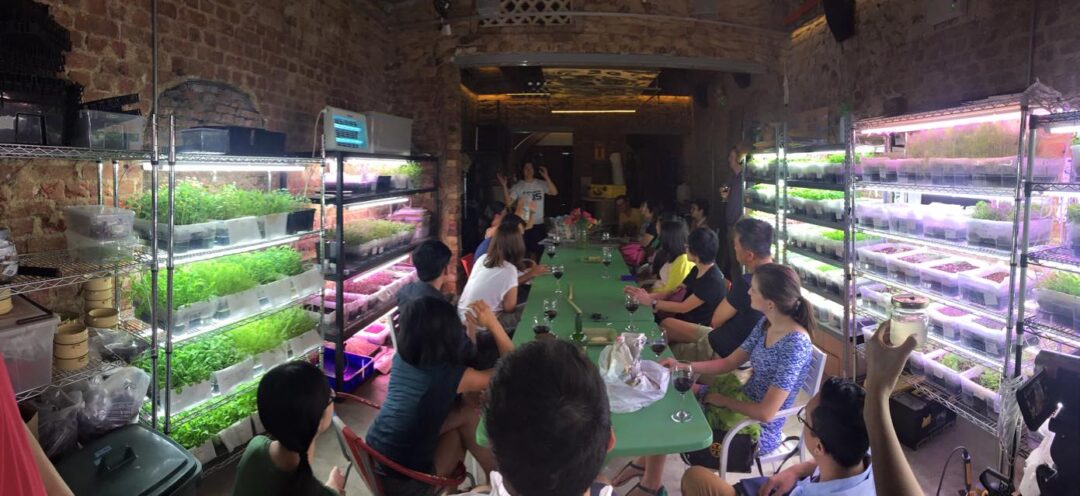
Returning to the city, I noticed small green spaces amidst the urban sprawl. These overlooked areas sparked an idea: urban farming. It was a way to adapt my passion for agriculture to the realities of Singapore’s urban landscape. Initially, it seemed unconventional and met with skepticism, especially from my family and peers who questioned the feasibility of urban farming in such a densely urbanized setting.
Q. What are the activities of your #impact business?
What we are doing is we’re conquering every single green space and turning it into a productive space.
I started small, collaborating with restaurants and chefs who were embracing the global trend of farm-to-table dining. This was a pivotal moment. We began creating hub gardens in urban spaces, demonstrating that local, sustainable food production was not only possible but also desirable in Singapore. It started to take off, and we began building more gardens for more restaurants and bars and then that that led on to schools, malls, and developers.
In the last 12 years we’re built close to 400 of these gardens so they can be from people’s homes all the way to large commercial production spaces.
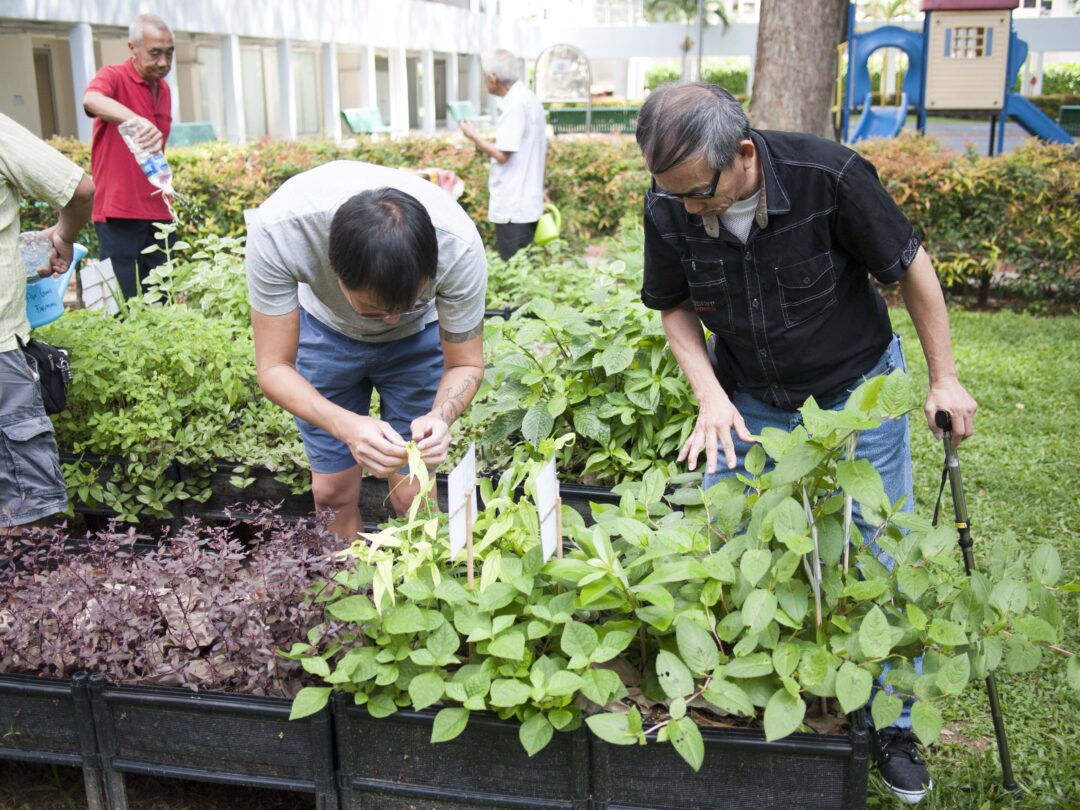
Q. What are the community building efforts of Edible Garden City?
We discovered the ability of a food garden and an urban farm to bring people and community together was a lot stronger than the food that we can produce.
So we began to expand the work we do to include activation and educational programs by engaging people from all walks of life to show them that it’s possible to produce your own food in the city. Our gardens became touch points for us to share knowledge and sustainability messages. To get people volunteering and to be involved.
Our initiatives are deeply rooted in philosophies from agricultural pioneers like Biodynamic Farming. One of our key initiatives involves training programs at schools that support autistic individuals, such as Pathlight. We’ve expanded our efforts to include training autistic adults, and currently, we have 10 autistic adults as part of our team, some of whom have been with us for seven years. They work part-time, which not only empowers them but also provides much-needed support and independence.
We strive to create inclusive spaces and opportunities for marginalized communities to thrive.
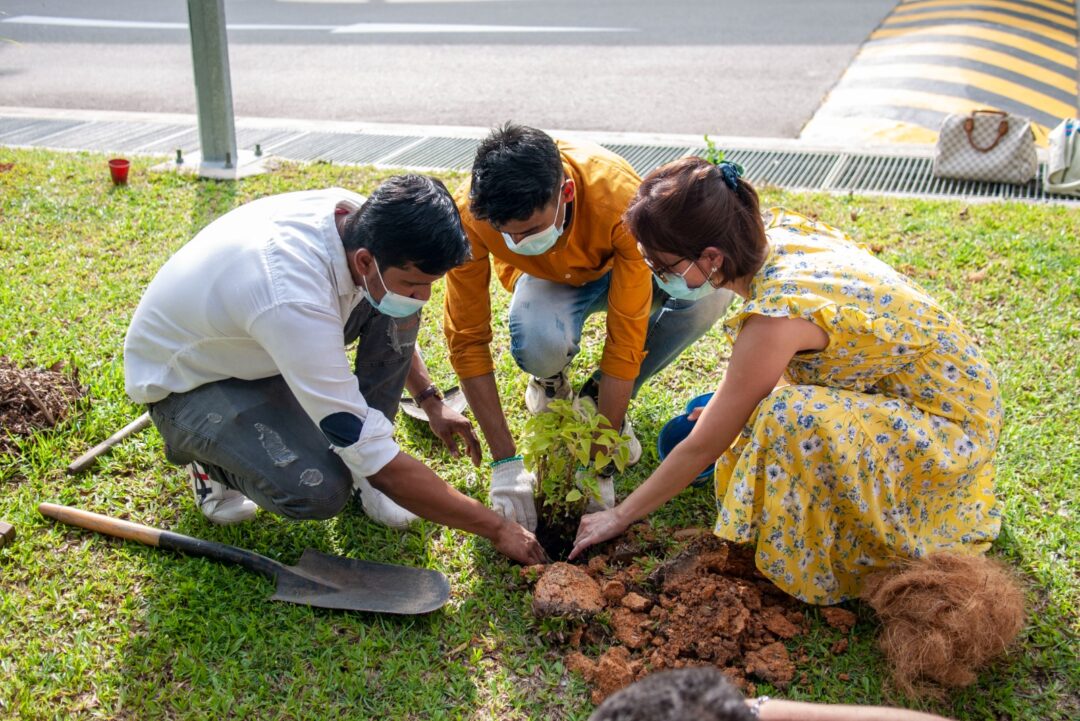
Q. How did public-private partnerships bolster Edible Garden City’s growth?
There were some food safety concerns in the beginning surrounding urban food production. But we were able to work around that because the restaurants were using it, and they had central facilities or kitchens to process things. We ran tests and found no concerns around heavy metals or chemicals because we treated all gardens organically.
The Singaporean Government has been largely supportive given they already had the foresight and had a government interministry panel looking at urban agriculture to increase food resiliency in the city.
For about five or six years, we were quite nomadic, moving from garden to garden.
It’s quite sad as a farmer to not have a stable space. But rallying support for the interministry task force helped us find transitional state lands to expand operations and experiment on new things. And with the support of the government, we secured our headquarters.
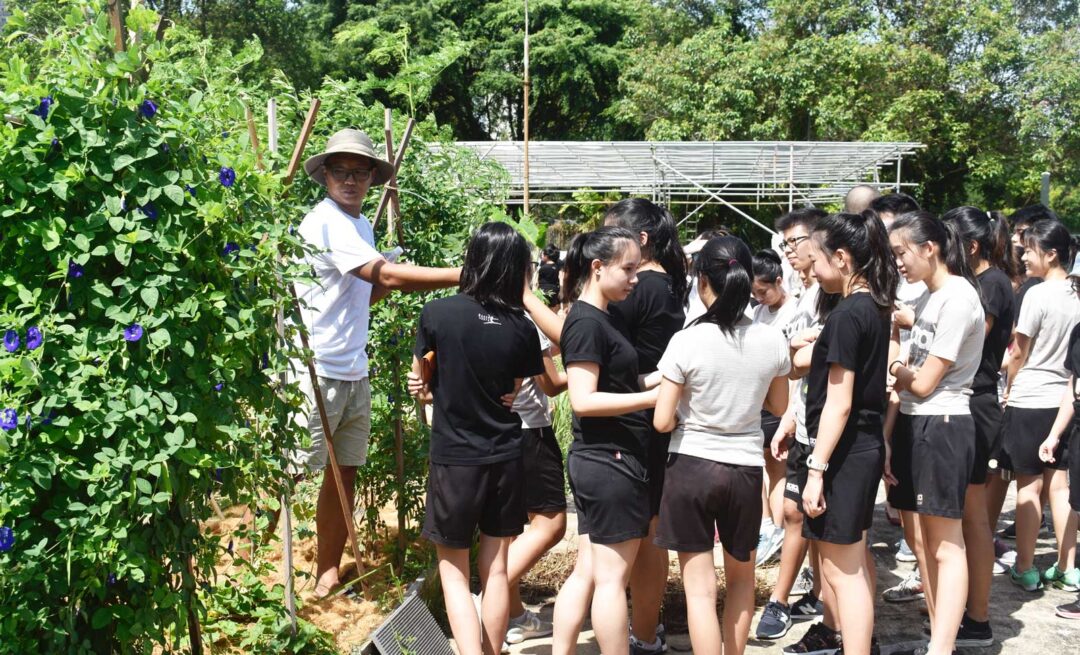
Them being able to create a model for transitional state land was crucial. They were also flexible with policies because they hadn’t decided what policies would be for urban agriculture. We became a test case. Over time, we established methodologies for using transitional state land, and they developed policies around it. The task force collaboratively developed these policies for urban agriculture to increase food system resilience, following criteria such as social impact, community engagement, and employment.
Q. What support do you seek from government and ecosystem builders to scale your #impact business?
I think that the ecosystem really started to come into place about 10 years back. However, the approach seemed to have a very narrow view of what a social enterprise can and should be. This brought a lot of social enterprises into the space, but their business models or intentions did not address the issues from a systemic point of view.
I find that social entrepreneurs I meet in India, Indonesia, and Thailand have big systemic visions. They understand and address systemic challenges.
– Bjorn Low, Founder of Edible Garden City
I hope the system can change as we mature as a space. In Singapore, we are very comfortable and well taken care of, so the need to innovate and look at broader issues is less urgent. But in other places where managing a country is harder, social entrepreneurs often play roles that activate spaces and provide for communities. Their challenges are more immediate, so they have a broader view of the change they’re trying to make.
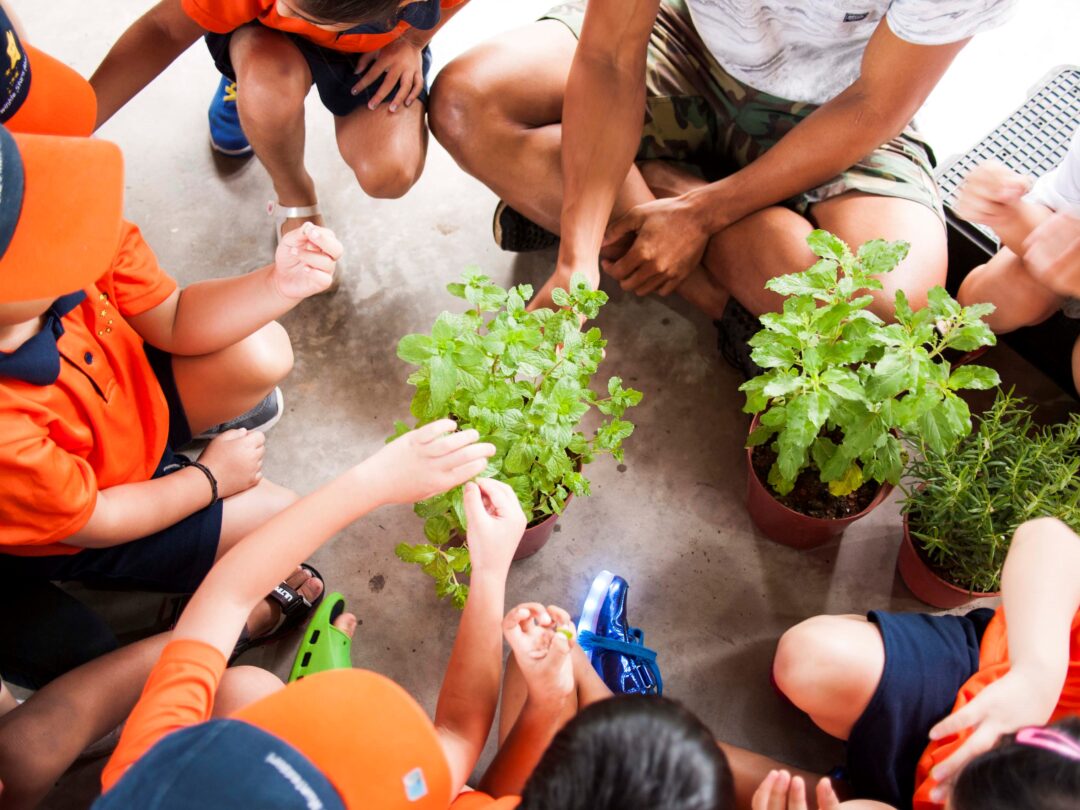
The battle I’m observing is that the government has picked up well on the need to produce more food locally. The 30 by 30 initiative is catchy but driven by productivity numbers and a silo approach using scientific methodologies and technology to produce more food. This is not wrong, but we need a more diversified approach to food production in Singapore. The concept of food sovereignty, where citizens take control of the food they command, eat, and grow, should be emphasized more than just putting funding into inviting tech companies to set up massive facilities, many of which have failed despite receiving millions in grants and funding.
One idea we are working on is converting many of Singapore’s green landscape spaces into nutritional stores. Instead of ornamental gardens, we could grow food-producing plants like sweet potato and cassava. This would improve soil, grow food plants, and provide resilience within Singapore’s green landscape.
We’ve coined the term “landscape nutrition index” to measure nutritional stores within Singapore’s landscape. It requires a simple policy change, as the resources and spaces are already there. This slight change in mindset from government ministries could make a big difference.
*Photos courtesy of Edible Garden City.
Learn more about Edible Garden City on their website: https://www.ediblegardencity.com
Disclaimers: This article does not constitute the promotion of the featured business. Interviews have been edited for clarity and conciseness.
| #ImpactASEAN is an initiative by the ASEAN-Japan Centre to spotlight impact investment & sustainable finance ecosystem actors of ASEAN and Japan. The ASEAN-Japan Centre works as an Enabler collaborating directly with its counterparts to promote impact investment through seminars, collaborative workshops, company visits, and research publications among others. Be a part of the #imapct and send us an email at info_rpa@asean.or.jp. |


